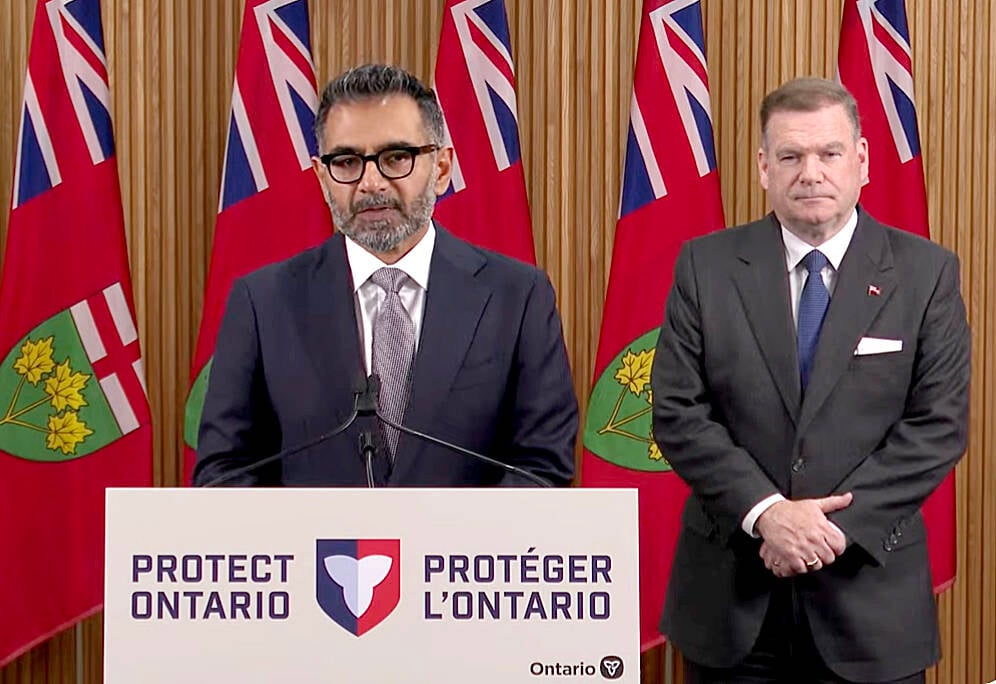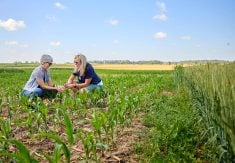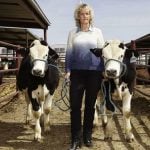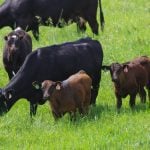Supermarket chain CEO Galen Weston pledged an increased commitment to Ontario-grown produce and promised to “lean in” to a growing market for vegan foods during a speech to kick off a high-profile, first-ever food security thinktank event in Toronto.
Why it matters: Grocery stores are where food trends hit the mainstream, so the food moves made by Loblaw are an indicator of what consumers are buying.
The Loblaw Companies Limited boss was the morning speaker during the Thursday sessions of the inaugural Arrell Food Summit. For the final of the three days of the Summit, the scene shifted from the University of Guelph (home to the newly created Arrell Food Institute) to Toronto.
Read Also

Conservation Authorities to be amalgamated
Ontario’s plan to amalgamate Conservation Authorities into large regional jurisdictions raises concerns that political influences will replace science-based decision-making, impacting flood management and community support.
He spoke directly to the theme of the inaugural Arrell Food Summit: “Innovation.” One example he cited was Ontario-grown greenhouse strawberries — which showed up in high-visibility entranceway displays in Loblaw-affiliated stores within days of the summit. Weston said the company’s domestic purchases are up by over 50 per cent since technology came into use about five years ago that enhanced taste of greenhouse-grown strawberries.
He also announced that by 2025 Loblaw will source $150 million more Ontario-grown product that is currently being imported — not just strawberries but all products that have a distinct harvest season in Ontario.
With another newly-announced initiative, he said, the company also hopes to spur investment among food processors in innovative vegan products. His example was a new coconut milk-based version of kefir — until now strictly a dairy-sourced product. But with vegan grocery shopping now representing a $1.4 billion business, “we’re leaning into that trend,” with plans to introduce 30 “exclusively vegan products” next year.
Innovation is also front and centre in the company’s future vision of how groceries make their way from farms into consumers’ kitchens.
Aiming for zero carbon emissions in transportation
Loblaw recently ordered 25 Tesla electric refrigerated highway transport trailers — part of what Weston says is a strong commitment by the company’s board of directors and upper management to work towards a zero carbon footprint for its distribution fleet. “You attach yourself with Tesla and you end up in the headlines,” he said, before adding there was also a recent contract signed with another company for electric vehicles that received much less media fanfare — but which he described as just as important towards meeting the zero carbon goal.
Online ordering options growing
Loblaw has also expanded its partnership with the Instacart online grocery purchase/delivery platform to include 15 Canadian cities across Canada. “You’re now able to make (grocery-buying) choices that are real-time” — meaning consumers are more likely to purchase only the amount of food they need and thereby decrease food waste, but also meaning Loblaw/Instacart can track when each consumer might run out of a product they purchase regularly, and provide updates to their smartphone that it’s time to re-order.
“You’ll see that get more sophisticated over time,” Weston said of a set of innovations that some might perceive as a more pernicious presence of the food retailer in consumers’ online identity.
Weston’s level of excitement, though, probably peaked when he showed a video promoting the company’s partnership with the Toronto-area GO transit system on a grocery locker now on site at a busy commuter railway station. “That is ultimate convenience,” he stressed, after the video showed a woman making orders online while she toiled at her office job, then getting off the GO train and picking her order up in Loblaw bags from the commuter station locker.
“Some people might find (that level of connectedness through technology) creepy; some people might find it cool,” he said. But one thing was certain: Loblaw is working to strengthen that connectedness as a way of serving what he says is an ever-expanding consumer demand for convenience.
Aspects of the Loblaw CEO’s address were referred to by other Arrell Food Summit presenters through the rest of Thursday — generally in a positive way, but not always.
Food insecure communities exist, especially in the north
Inuit leader Sheila Watt-Cloutier, who has worked at the United Nations level to convince world leaders that human-induced climate change directly affects the ability of her Arctic compatriots to procure nutritious food, expressed surprise about Weston’s lighthearted example of Tropicana orange juice. “You can’t really give away Tropicana today,” the Loblaw CEO mused, “and it used to be a super-premium product.” He added the consumer segment which previously desired the juice because it was perceived as being as close to fresh as possible now instead desires more recently introduced products that sell for as much as $7 per litre — despite the fact they’re nutritionally the same as Tropicana.
Watt-Cloutier, though, later took issue with Weston’s characterization that the juice now sells for basement prices. Not so in remote northern communities, she offered, where her recollection is that it still costs close to $20 for a jug of that nutritious drink.
Director of Oxford University’s Martin Programme on the Future of Food, Sir Charles Godfray, also served up a different take regarding one of the innovations cited by Weston — albeit in a clearly lighthearted tone.
Loblaw’s marketing of Ontario-grown cricket powder, made from real, live crickets raised at Norwood, Ontario, is “a really cool initiative we’re really proud of,” Weston told Food Summit attendees — “an incredibly efficient way of injecting animal protein into your diet.” Perhaps setting himself up for subsequent teasing, he added the powder “is not a neutral flavor. It’s a bit nutty. But it’s not gross.”
Godfray, a one-time research colleague of the father of Arrell Food Institute Director Evan Fraser, took note of Weston’s description of the taste. Asked to comment on the potential role of innovations in tackling the depletion of the earth’s resources through food production, he questioned the potential of insects raised for human consumption.
He spent much of his academic career as an entomologist, he shared, adding, “I try to take the opportunity whenever I can to eat (insects). But I’m sorry to say I haven’t found any insects that I like.”
Godfray does see potential, though, in insects raised for animal feed — as long as it can be proven that the production and subsequent consumption of that feed by the livestock doesn’t contribute more to greenhouse gas production than would a more conventional livestock diet. “You can do this well or you can do it poorly,” the Oxford Martin Programme director said.













